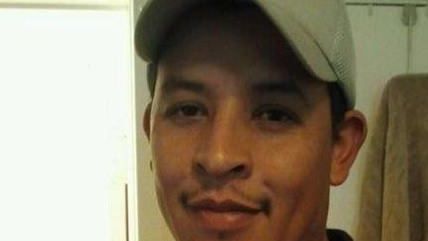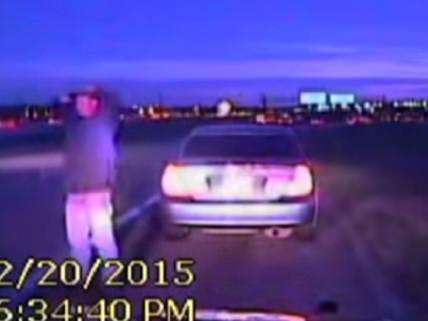Grand Jury Doesn't Indict Cop Who Shot and Killed Unarmed Man; Cop Could Still Lose Job
No special privileges in Texas guarantee his job just because of the absence of charges related to possible misconduct.


In February, Ruben Garcia Villalpando was shot twice in the chest after approaching Robert Clark, a police officer, with his hands on his head despite being ordered to stop. It was the end of a short chase that started when police approached Villalpando as he sat in his truck in a parking lot. At the time activist suggested Villalpando, who was an illegal immigrant, could have been trying to get away from police because he didn't have documents. His family's attorney now says Villalpando was intoxicated but that that still didn't justify the use of deadly force. A grand jury disagreed, declining to indict the officer.
NBC in Dallas reports:
"The grand jurors were given complete and open access to all the evidence in this case, included cellphone videos, the dash cam video from officer Clark's vehicle, witness statements, police records and reports, and any additional information that they requested," said Larry Moore, Chief of the CDA's Criminal Division, who led the state's presentation. "They heard testimony from witnesses representing both Mr. Villalpando and officer Clark. The attorneys representing officer Clark and the Villalpando family were also given the opportunity to directly address the grand jury, should they wish to do so."
The dashcam video was released this week after the grand jury's announcement, but does not show the shooting—it happened off camera. The Villalpando family's attorney says he believes the video could have been doctored, because a video taken moments after the shooting shows Villalpando's body in front of the dash cam. He may have been referring to this cellphone video. The person who took says he was surprised at the time none of the cops were offering Villalpando medical assistance as he lay on the ground. The family's attorney says he'll be hiring an expert to examine the video.
While the grand jury has declined to indict, Grapevine police say their internal investigation continues, and could still lead to Clark's firing. The proceedings of the grand jury were secret so it's difficult to assess what happened. But if a prosecutor can indict a ham sandwich, he should also be able to fail to indict someone who deserves it. Because prosecutors depend on police on their daily bread and butter (suspects to charge with crimes), there's going to be room for skepticism in decisions like these. How much skepticism, and how engaged local residents are about it, will determine how long the present arrangement continues around the country.
After the grand jury declined to indict anyone in the case of the death in police custody of Eric Garner, the state's attorney general requested authority from the governor to oversee investigation of alleged criminal activity by police officers while on duty that results in death. Both the attorney general and the governor were in office for nearly four years before this happened—it took the attention Eric Garner's death drew to a situation that shouldn't ever have been politically tenable in the first place.
Meanwhile a bill introduced in Missouri by Jay Barnes, a Republican state legislator, one of sixty bills related to police reform introduced after events in Ferguson last summer drew national attention to the need for police reform, would have required the appointment of special prosecutors to deal with cases against cops. That bill, and most of the others introduced in Missouri, failed to pass. One prosecutor, Jackson County's Jean Baker, insisted prosecutors usually don't bring cases to grand juries except when it comes to police, saying that that explains the lower rate of grand jury indictments of cops. But she didn't see how that's a problem. Instead, she says she believes she's accountable to the public and can be trusted to deal with alleged criminal actions by cops. And if people didn't think so? Baker told the Kansas City Star: "If they don't like how I'm handling cases, they can remedy that quickly with their ballot. A special prosecutor is not accountable in that way." Democracy as justice, in action.


Show Comments (18)